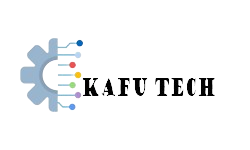Introduction:
Public Wi-Fi alludes to remote organizations that are available to general society, commonly given by places like bistros, air terminals, inns, and libraries. These organizations permit clients to interface with the web without requiring a wired association. While advantageous, public Wi-Fi networks accompany intrinsic dangers, especially with regards to assignments including delicate data like computerized banking.
Potential Risks of Involving Public Wi-Fi for Advanced Banking
At the point when you utilize public Wi-Fi for computerized financial errands, you open yourself to a few likely risks, including:
1. Man-in-the-Center Assaults:
In a man-in-the-center (MITM) assault, a programmer blocks correspondence between two gatherings, like you and your bank’s site, without either party knowing. This permits the aggressor to listen in on delicate data, including login accreditations, account numbers, and monetary exchanges.
2. Rebel Wi-Fi Organizations:
Programmers can set up rebel Wi-Fi networks with names like genuine ones (a training known as “detestable twin” organizations) to fool clients into interfacing. When associated, these aggressors can screen and capture information sent over the organization, possibly undermining your computerized financial exercises.
3. Bundle Sniffing:
Bundle sniffing includes catching information parcels as they traverse an organization. Programmers can utilize specific programming to block and dissect these bundles, possibly removing delicate data, for example, usernames, passwords, and record subtleties.
4. Malware Appropriation:
Public Wi-Fi networks are frequently focused on for the conveyance of malware. Programmers can infuse malevolent code into sites or make counterfeit login pages that look like real financial destinations. Assuming that you coincidentally access these destinations while associated with public Wi-Fi, you may accidentally download malware onto your gadget, compromising the security of your advanced financial exercises.
5. Shoulder Surfing:
Indeed, even without refined hacking methods, pernicious people can take part in shoulder surfing, where they essentially investigate your shoulder as you enter delicate data on your gadget. Public Wi-Fi conditions, for example, swarmed bistros or air terminals, make it simpler for aggressors to notice and catch login accreditations and other individual information.
Alleviating the Dangers
While the risks of involving public Wi-Fi for advanced banking are genuine, there are steps you can take to alleviate these dangers:

Utilize a Virtual Confidential Organization (VPN):
A VPN encodes your web association, making it more challenging for programmers to catch your information. When associated with a VPN, all information sent between your gadget and the VPN server is scrambled, upgrading the security of your computerized financial exercises.
Try not to Access Delicate Data:
Whenever the situation allows, abstain from directing computerized financial undertakings or getting to delicate data while associated with public Wi-Fi organizations. Hold on until you’re on a protected, confidential organization prior to signing into your internet banking record or making monetary exchanges.
Keep Programming Refreshed:
Guarantee that your gadgets and security programming are fully informed regarding the most recent fixes and updates. This safeguards against known weaknesses that programmers might take advantage of to think twice about gadget or catch your information.
Conclusion:
While public Wi-Fi offers comfort, it likewise presents critical dangers with regards to finishing advanced financial assignments. By understanding these dangers and executing security best practices, for example, utilizing a VPN and staying away from touchy exercises on open organizations, you can more readily shield yourself from possible dangers and defend your monetary data.

